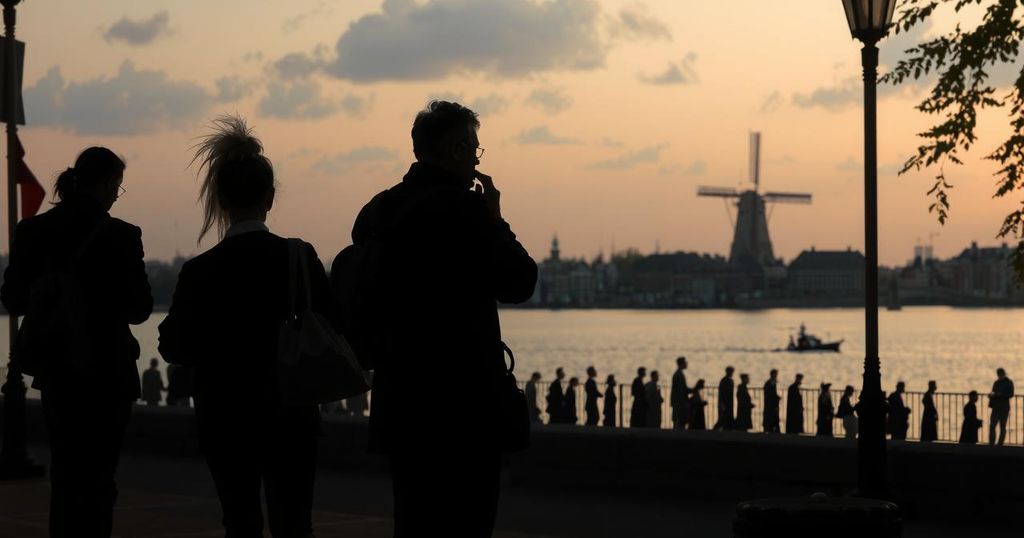Confronting the Shadows of Colonialism: The Dutch Struggle with Historical Accountability
The article examines the Netherlands’ discomfort with its colonial history, particularly in relation to Indonesia, highlighting the societal reluctance to confront atrocities committed during colonial rule. Prominent figures like Jan Pieterszoon Coen and J.B. van Heutsz are discussed, emphasizing the controversial glorification of these historical figures. Protests against colonial-era statues reflect a broader struggle for recognition and reparative justice, contrasting with the shifting attitudes seen in Belgium. Despite some apologies, no formal government acknowledgment has been made regarding the broader violence of the colonial era, revealing a deep societal divide in acknowledging historical wrongs.
The Netherlands, traditionally perceived as a liberal nation, faces growing discomfort regarding its colonial past, particularly in relation to Indonesia. Historically, the Dutch East India Company (VOC) began its colonization of Indonesia in the 1600s, framing its actions as a civilizing mission for what it perceived as a primitive society. However, this narrative hides grave atrocities committed during this period, including widespread torture, executions, and the brutalization of civilians. Jan Pieterszoon Coen, a prominent figure in these events, is often controversially celebrated as a hero in the Netherlands despite his direct involvement in the massacre of thousands during the conquest of the Banda Islands. Protests against the glorification of figures like Coen have emerged, notably in Hoorn where calls to remove his statue have intensified. Despite local government attempts to acknowledge the dark aspects of his legacy through plaques, many argue such actions still inadvertently honor his violent achievements. In Amsterdam, similar controversies surround monuments to J.B. van Heutsz, a governor linked to significant violence against Indonesian civilians. Despite these contentious legacies, many Dutch politicians, including Prime Minister Mark Rutte, have urged caution in assigning modern moral judgments to historical figures, reflecting a broader public sentiment that still largely regards Dutch colonialism with pride rather than shame. Surveys reveal that many in the Netherlands perceive their colonial past as benign, contrasting sharply with the sentiments observed in countries like Belgium, where attitudes toward colonial legacy have shifted significantly, leading to the removal of statues and public acknowledgment of historical wrongs. This reluctance to confront the negative aspects of Dutch colonialism is further compounded by a reluctance in education systems to address these issues comprehensively, often prioritizing narratives of victimhood during World War II over the intricate, violent history of colonialism in Indonesia. Although there have been some apologies from the Dutch monarchy concerning certain atrocities, no formal government apology has been extended for acts committed during the colonial era prior to 1945. As a result, the ongoing struggle for recognition and reparative justice remains pivotal in contemporary Dutch society.
The Dutch colonial legacy, particularly in Indonesia, remains a contentious subject within the Netherlands. Founded in the early 17th century, the Dutch East India Company was crucial in establishing colonial rule over Indonesia, which lasted for centuries. Under the pretext of a civilizing mission, Dutch colonial administration inflicted severe violence and oppression on the Indonesian population. This legacy contrasts starkly with contemporary global movements advocating for the removal of colonial-era symbols, prompting Dutch society to grapple with its historical narrative. The current debates reflect broader issues of historical accountability, nationalism, and racial justice that resonate beyond the Netherlands, necessitating a reevaluation of past atrocities and their place in present-day society.
The ongoing discourse in the Netherlands regarding its colonial past illustrates a profound struggle with uncomfortable historical truths. The resistance to acknowledging the violent imprints of colonialism underscores a national narrative outweighed by pride in historical achievements. As movements in other countries achieve tangible results in addressing colonial histories, the Netherlands faces essential questions regarding identity, responsibility, and the moral imperatives of confronting its past. Ultimately, a comprehensive reckoning with the legacy of figures such as Coen and Van Heutsz is crucial in paving the way for holistic national healing and a more honest educational framework moving forward.
Original Source: foreignpolicy.com




Post Comment